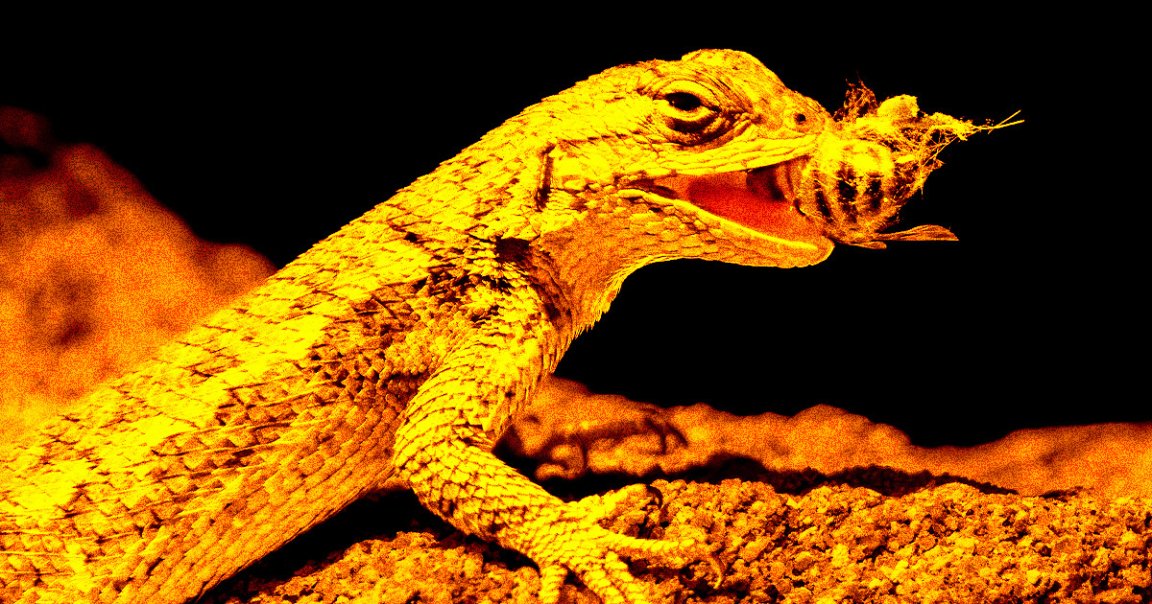
Relatable
Overeating isn’t just for stressed-out humans, it seems.
According to a new study published in Frontiers in Amphibian and Reptile Science, it’s also the preferred coping mechanism of a certain population of the Colorado checkered whiptail — a rare type of asexual lizard in the Centennial state — that, as the result of noisy flyovers conducted by the US military’s nearby Fort Carson, overeats to manage its noise-induced stress.
“Here we show that noise disturbance does have measurable physiological impacts on Colorado checkered whiptails,” study lead Megen Kepas, a doctoral student at Utah State University, said in a press release. “We also show that they are somewhat resilient and may compensate for this to some degree by [altering] their feeding and movement behavior.”
“Somewhat” resilient, but keeps on keeping on by snacking through the anxiety of it all? Same.
Lizards Who Lunch
The whiptail community — of which every single critter is an asexually-reproducing female — arguably deserves a little more respect from the area’s military body, considering that the US Army, according to the press release, has the lady lizards listed as a “species at risk.” (The whiptail is also considered a “species of concern” by the Colorado Parks and Wildlife association, per the release.)
To conduct the study, the scientists first had army pilots abstain from flying any craft over base land for several days. Then, for a three-day period following, pilots flew scheduled flights over a certain 0.002-square-mile chunk of the 212-square-mile base. On non-flyover days, the area’s noise volume stayed around 30.1 and 55.8 decibels, which is roughly the range of a humming refrigerator; during the scheduled flyovers, that figure rose to about 112.2 decibels, which according to the study authors is similar to that of an “orchestra or a power saw.”
The researchers, meanwhile, spent each day catching as many whiptails as they could find, observing their behavior first before bringing them into the lab for weight measurements, blood tests, and ultrasounds. After catching — and releasing! — 82 individual lizards, the team was able to determine that flyovers caused the lizards’ cortisol levels to spike, with pregnant lizards exhibiting the most extreme stress responses.
And how did they cope with that stress? By eating more, of course, but also moving around less.
In other words, they’re not just hungry when stressed — they get tired and have to slow down, too. Colorado checkered whiptails: they’re just like us.
More on animals: Something Cool Is Happening to the Frogs at Chernobyl